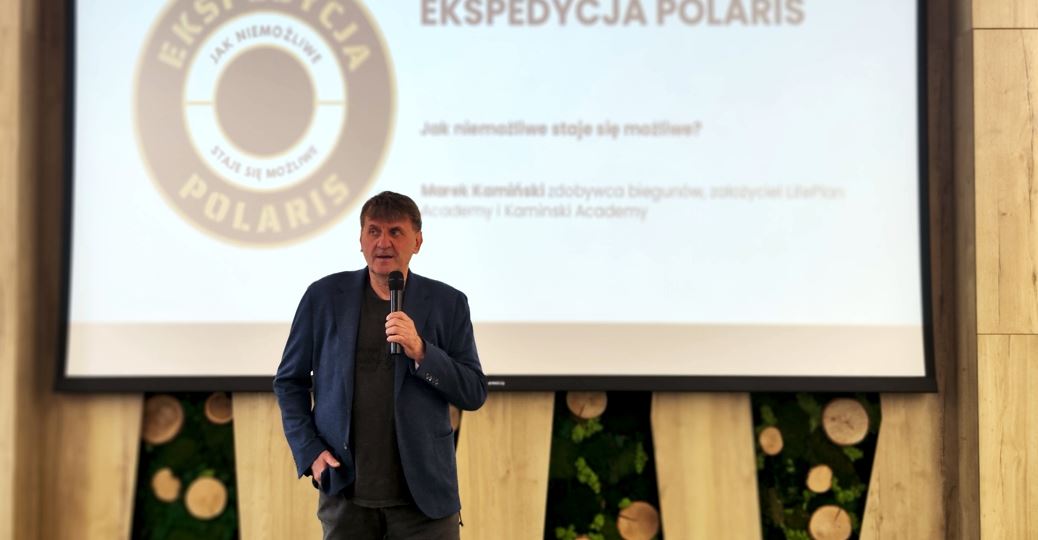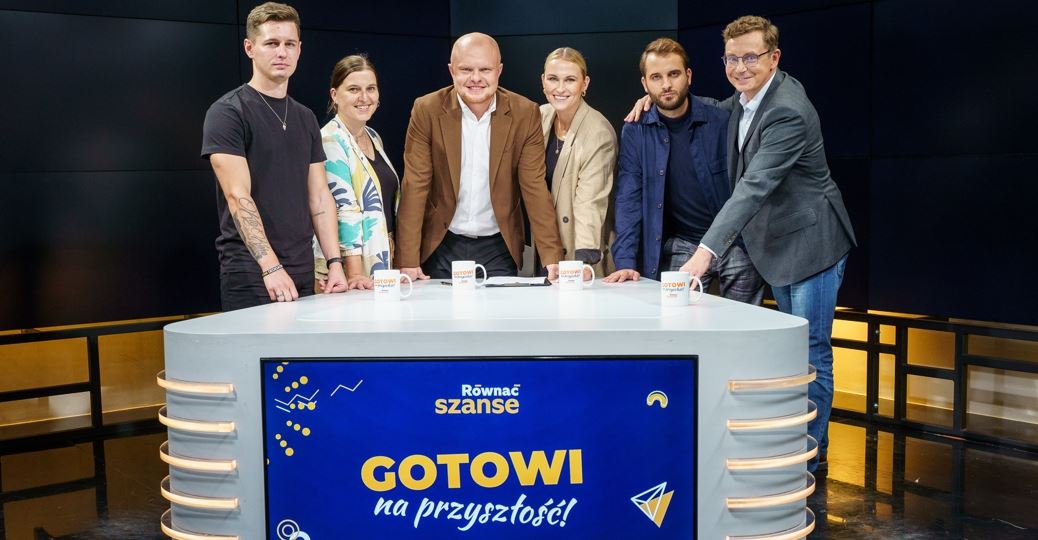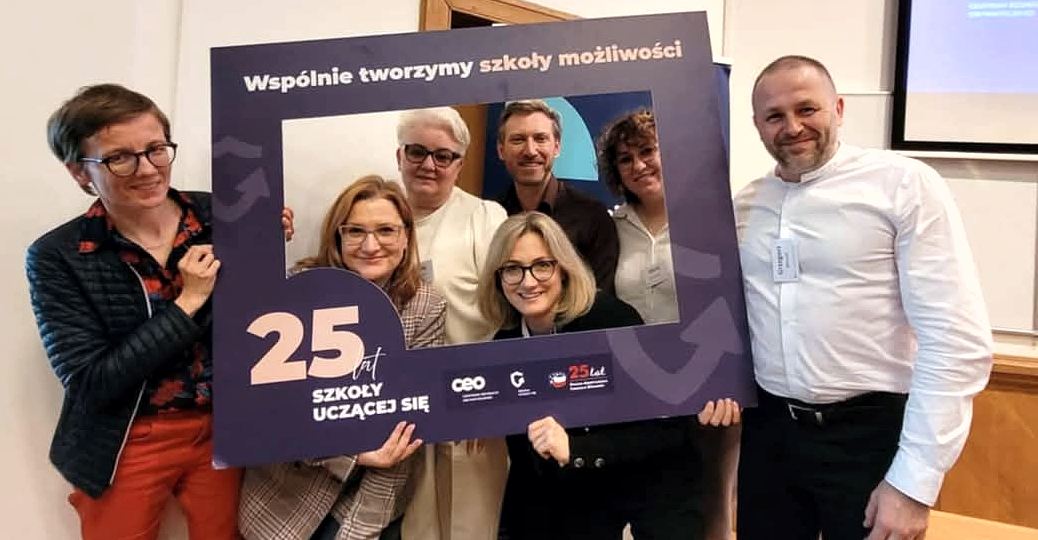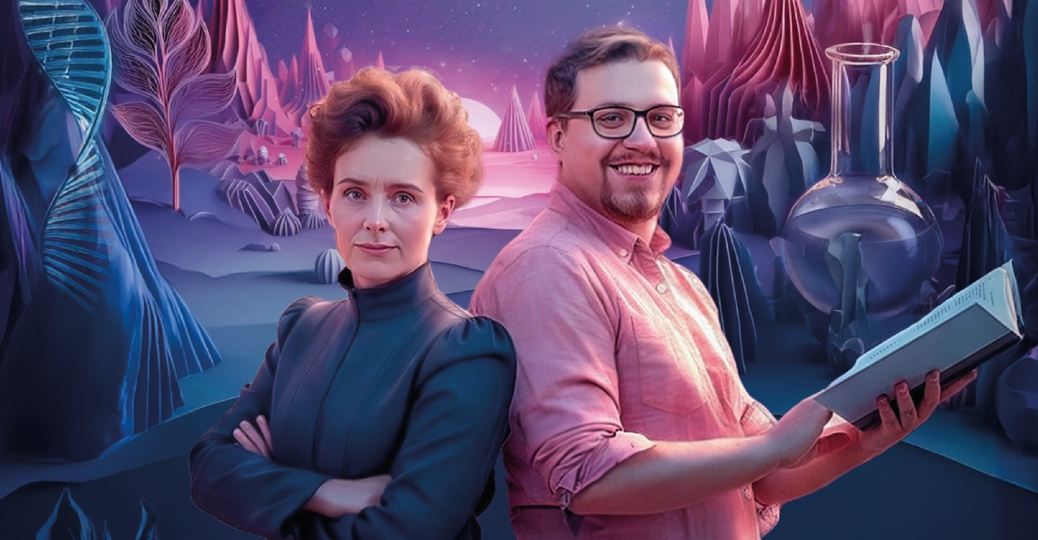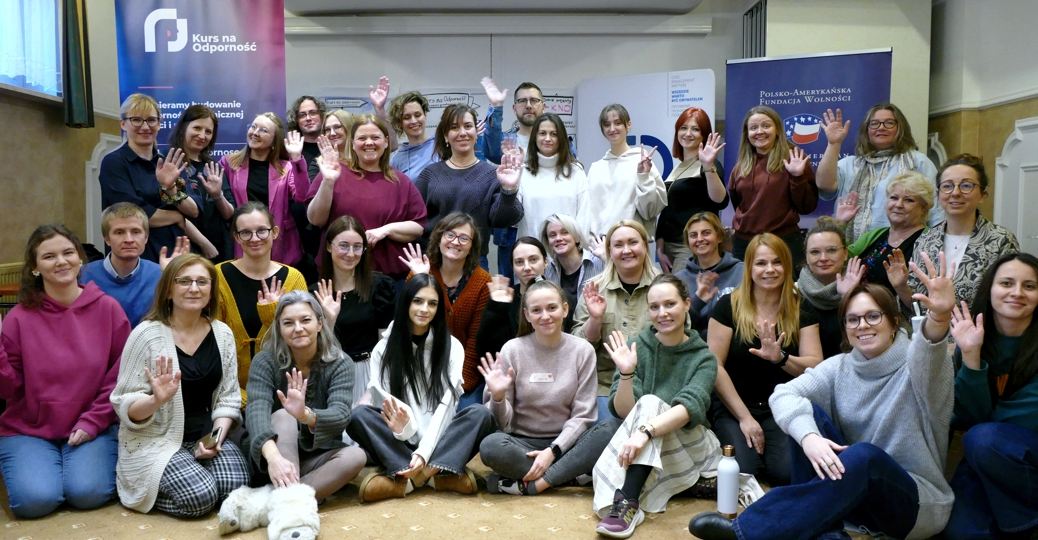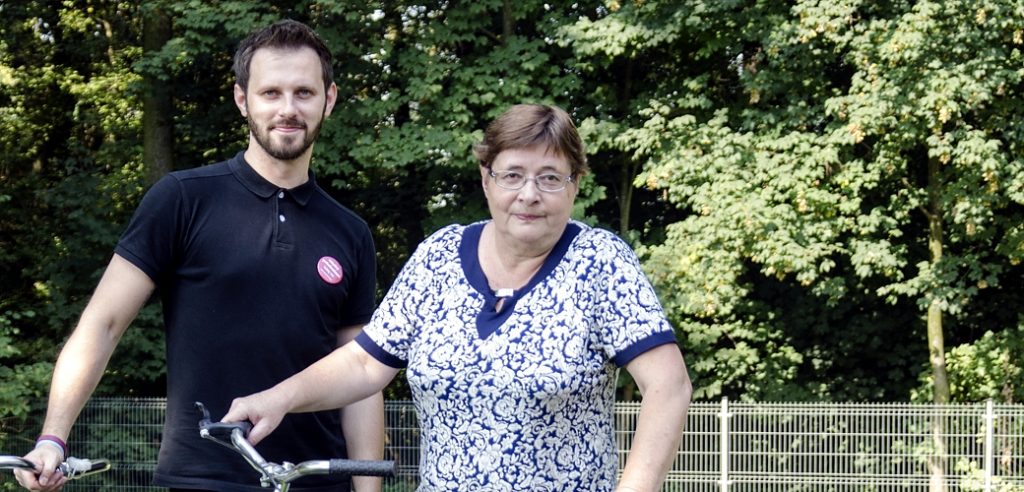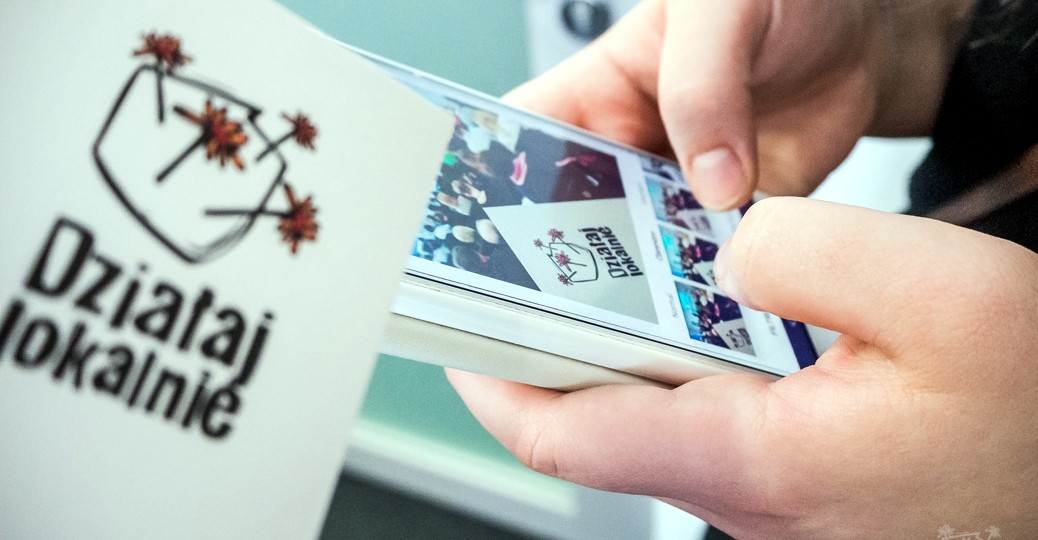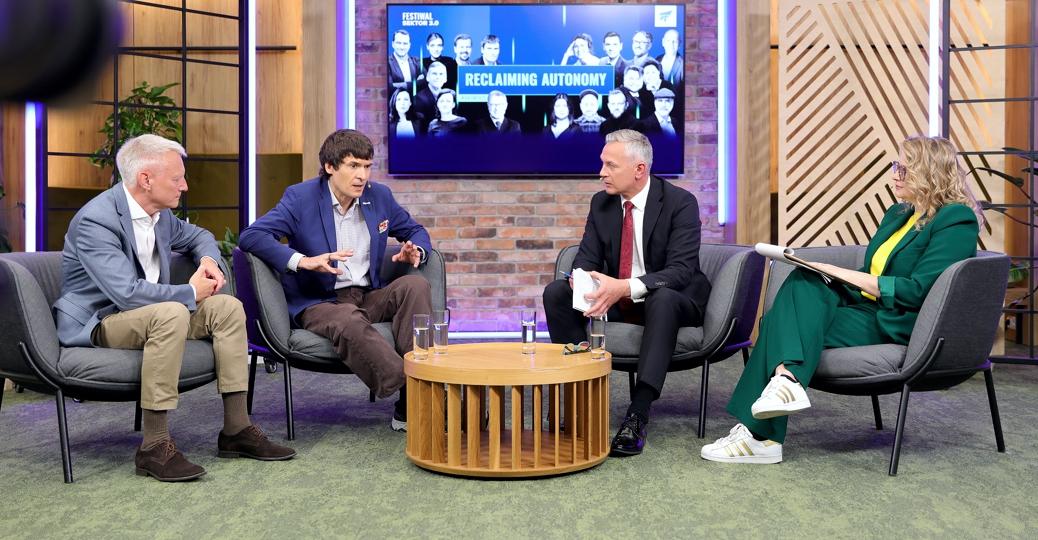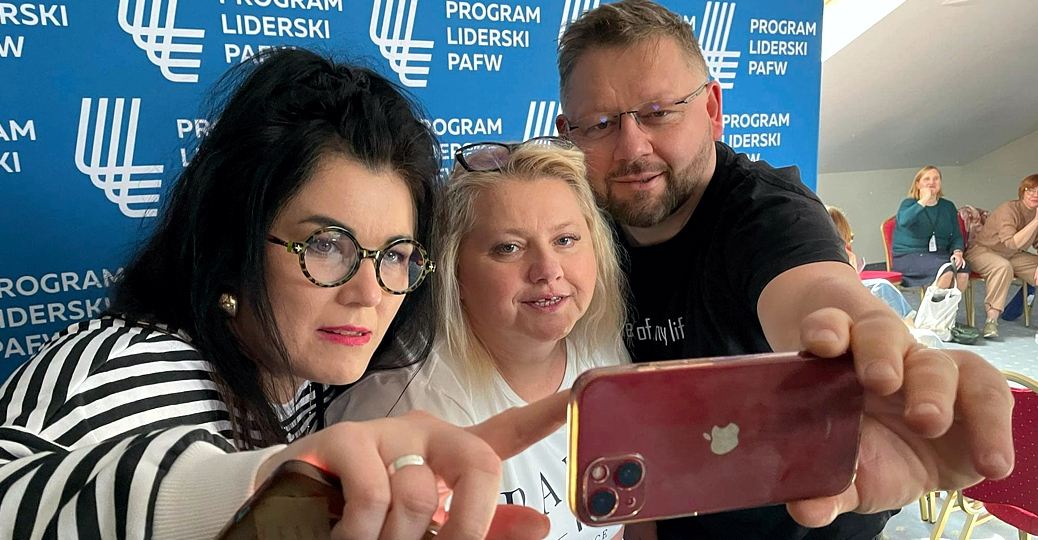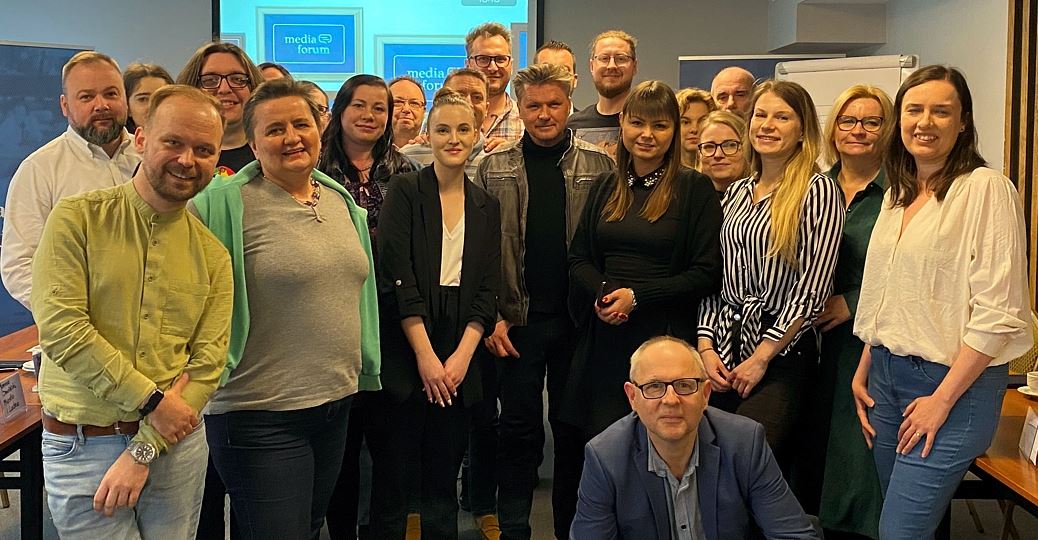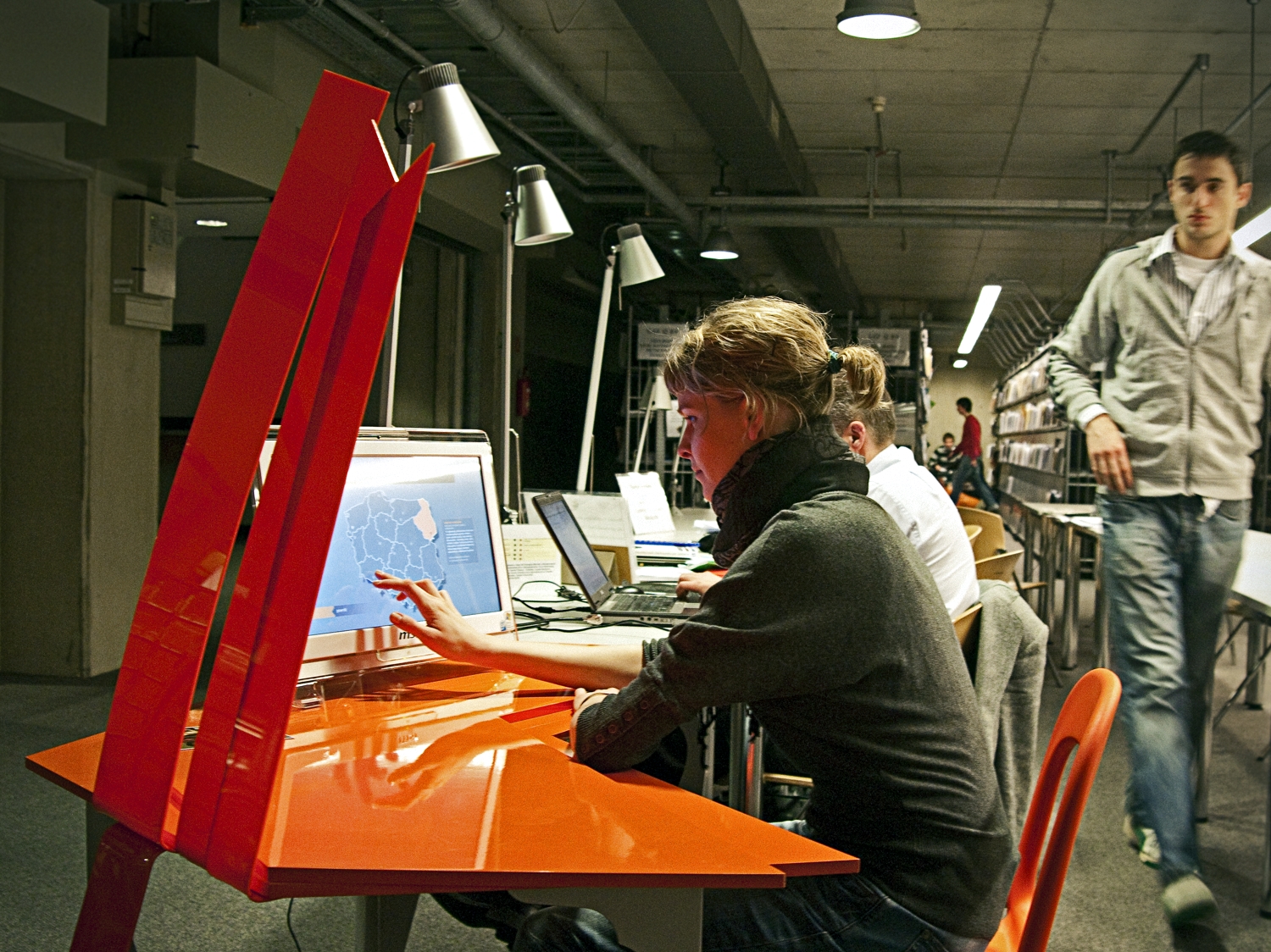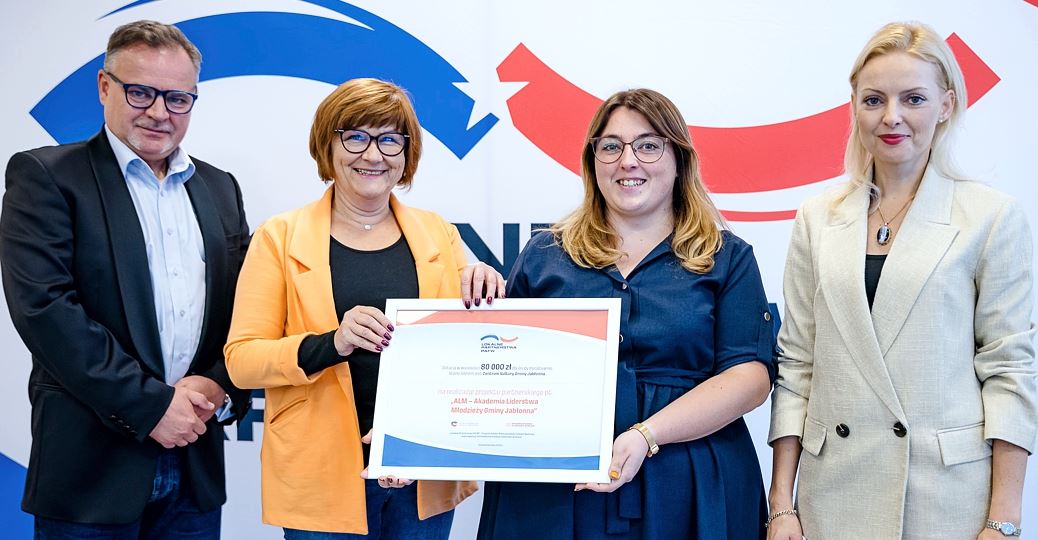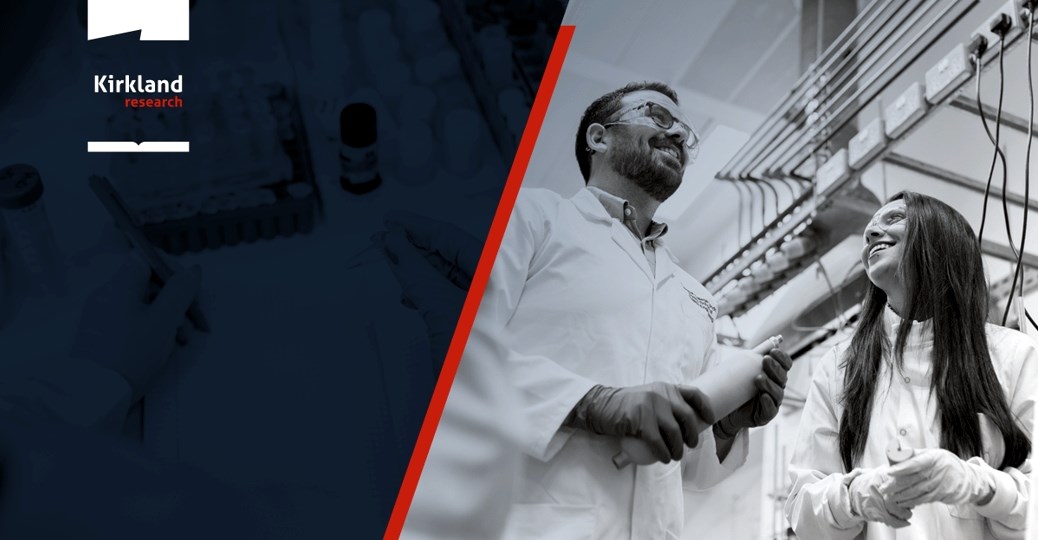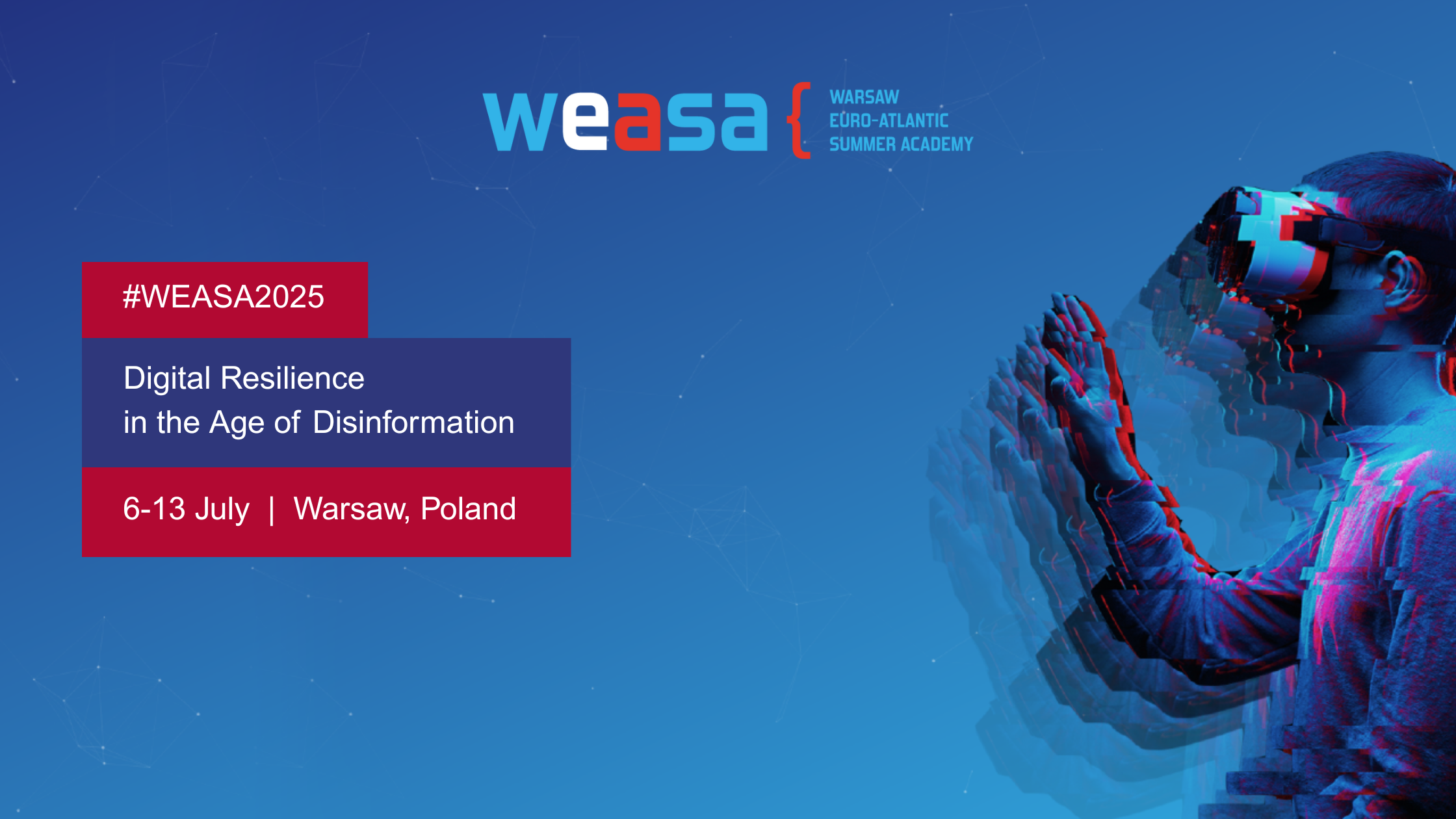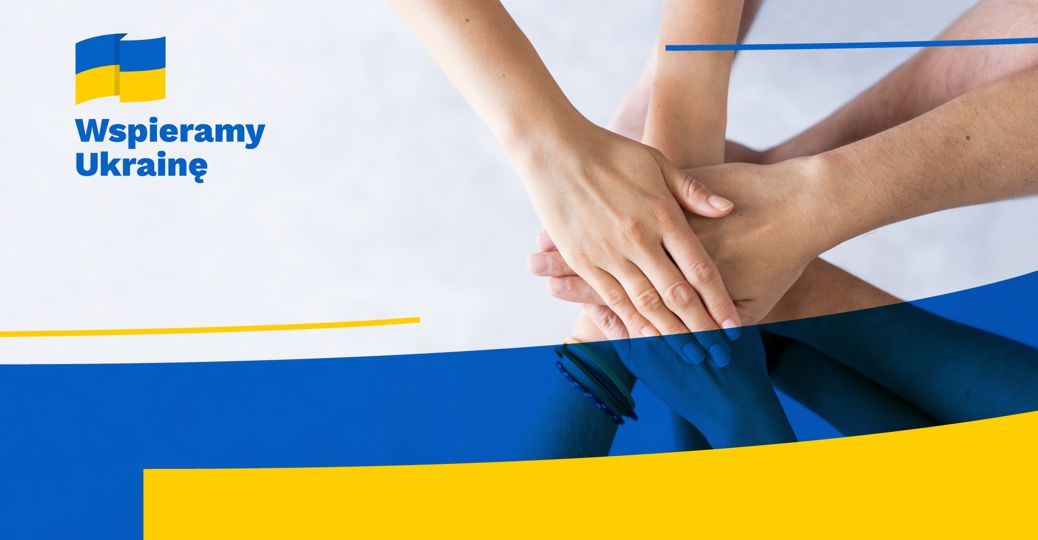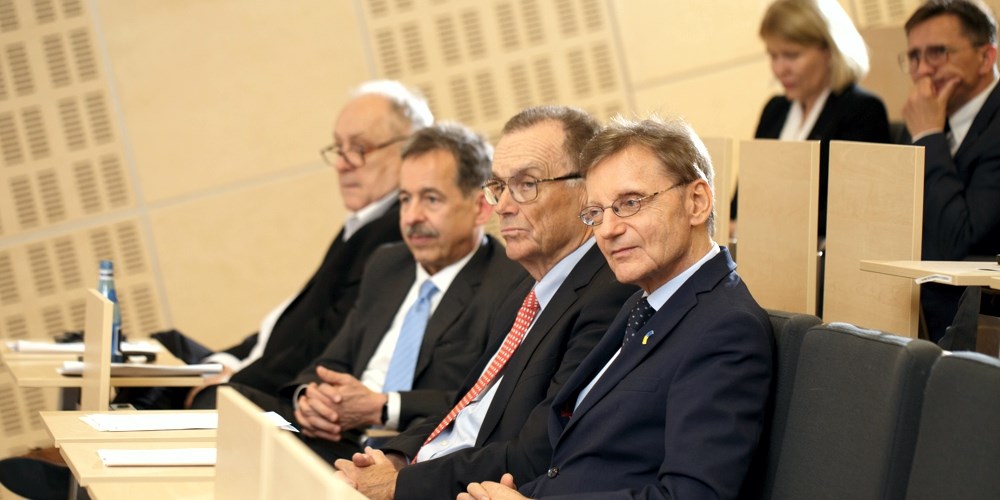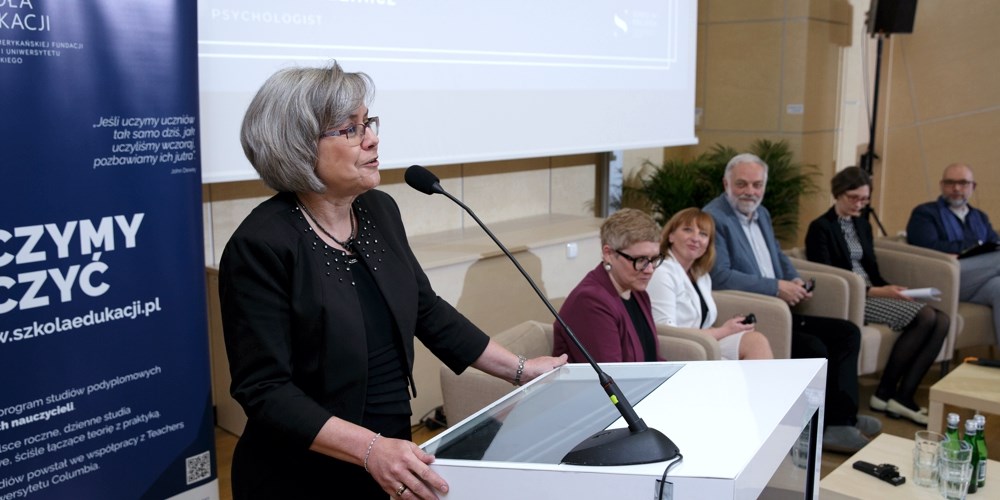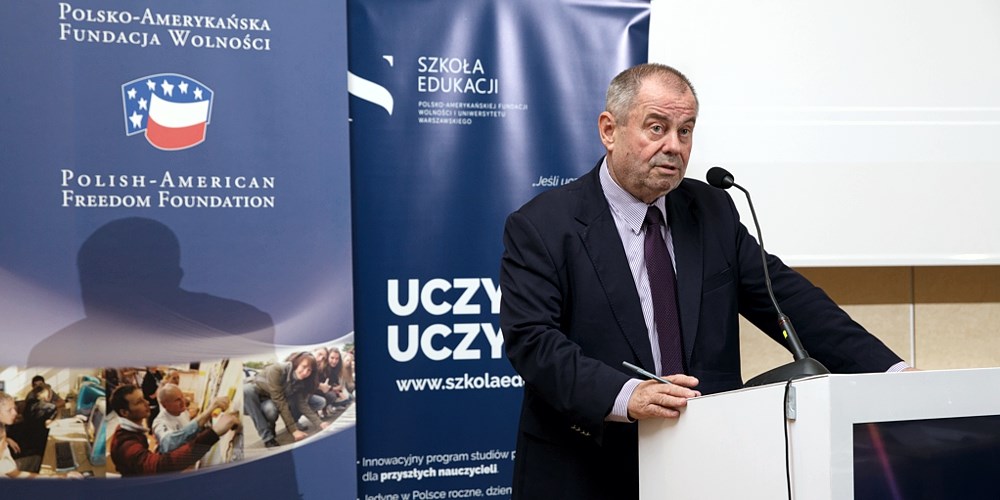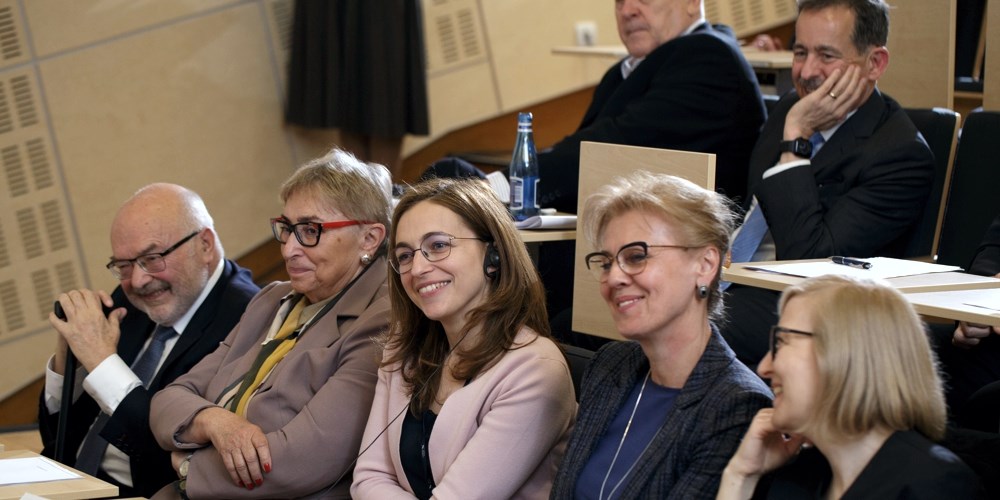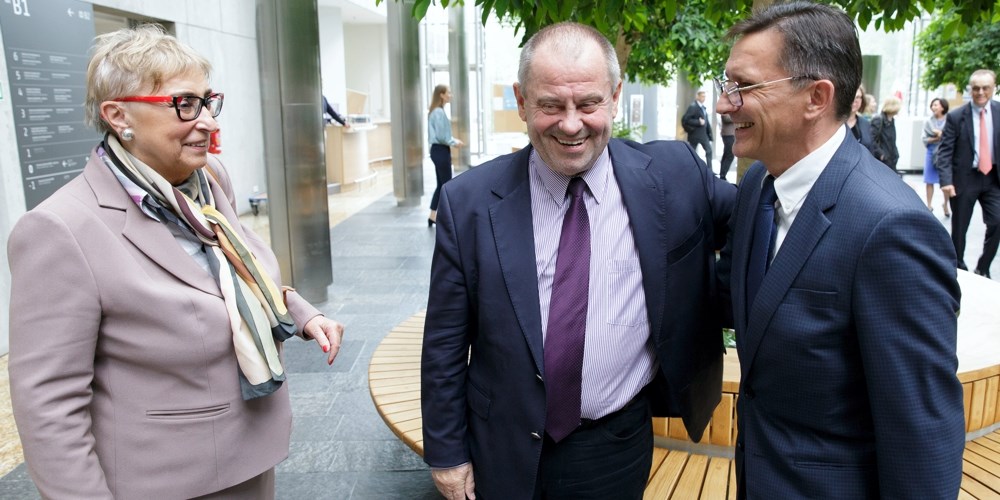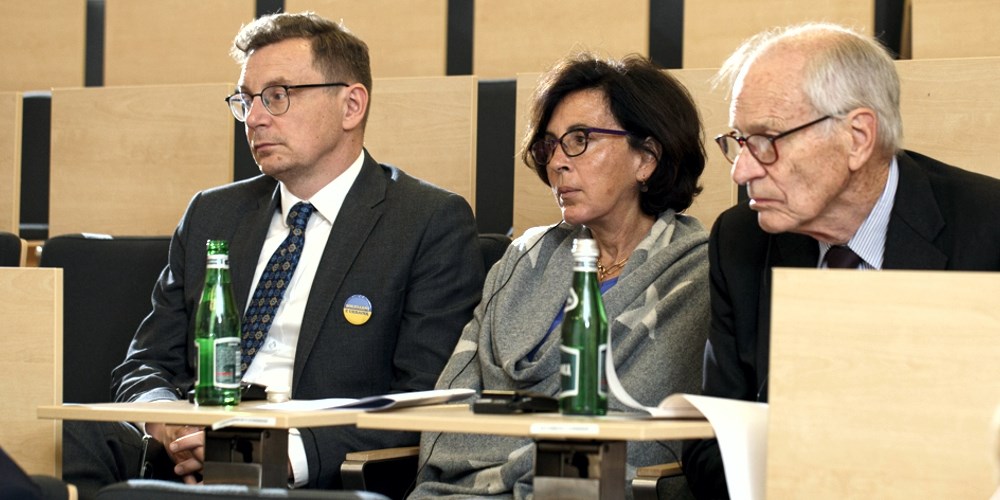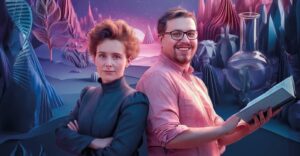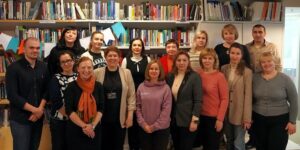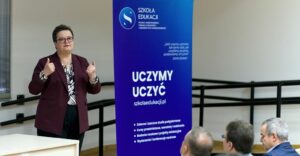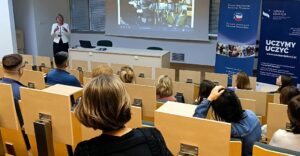On May 19, 2023 members of the Polish-American Freedom Foundation Board of Directors visited the School of Education, which is a joint undertaking of PAFF and University of Warsaw. The meeting was also attended by Rector of University of Warsaw Prof. Alojzy Nowak.
School of Education is a joint undertaking of the Polish-American Freedom Foundation and the University of Warsaw, whose curriculum was designed in close cooperation with Columbia University Teachers College in New York. This is the only non-remote, full-time post-graduate course in Poland granting teaching certificates.
“We would like to invite you to look at the school, students, teachers, and parents through the lens of ‘education spectacles’, so that you can see our point of view. We would like to show you what we, at the School of Education, think about educating good teachers and how we implement our ideas in practice,” said the School of Education Director Prof. Jolanta Sujecka Zając, who welcomed the visitors.
Rector of UW: The School of Education is a chance for teachers
“Through that program we show that we are open, that we realize we have many friends in America. It allows us to become international and gives the teachers a chance to learn modern teaching methods and best teaching practices,” Rector of UW, Prof. Alojzy Nowak emphasized. He also pointed that over last year’s one can see a new attitude of academic community to issues of education, teachers training, and working with the youngest pupils. You cannot separate the research work and teaching,” the Rector of UW added.
What impact has the School of Education on its community?
Urszula Skrzypczak, Director of the No.1 Elementary School in Piastów, one of the schools where School of Education students practice – told the guests about cooperation with the SE students. “We go through crisis years recently: the pandemic, the war. In such moments relations with School of Education have turned out to be beneficial for our teachers. They got new methods, such as Thinking Class, as well as support in distance teaching. Also, the guides on core curriculum in Ukraine prepared by staff of the School of Education were priceless,” said director Skrzypczak.
Andrew Nagorski, Chairman of the PAFF Board of Directors, pointed to the significant role played by school and teachers and importance of good education at the time when children and young people go through difficult experiences of pandemic, distant education or – these days – war in Ukraine.
The School of Education is like NASA
“The most important in that cooperation is that the School of Education gives its students enough time. When I started my internship as a student, I had a lot of classes to conduct, and nobody had time for me. At the School of Education students can make tests and mistakes under controlled conditions. As a result, school students benefit because they see that learning from one’s mistakes is important and natural, that we cannot be afraid of making mistakes. I believe that the PAFF and UW School of Education graduates will turn the system upside down,” interns tutor and math teacher Katarzyna Rylska said.
Polish path graduate Kamil Kasprzak told about his personal success: “I have been a teacher at a state school for 2 years, and I still want to teach.” He also pointed to the fact that today there are a lot of students with problems, depression, various levels of maturity, and various needs. The School of Education gave him tools, detailed procedures, and taught him ways of supporting his students. “We can not only identify needs but also react to them. The School of Education is like NASA that plans to send astronauts into the Space and prepares them to be able to act in any situation. I feel like that. Thanks to my studies I haven’t found myself in a situation that I had to say: ‘Houston, we have a problem.’ But I also know that if such a situation happened, I would find help here.”
Educational challenges know no borders
Coming from Belarus math path student Olga Stepanova told the participants of the meeting how studies at the School of Education helped her run an organization supporting the refugee children. She could test teaching methods that she had learned in her foundation, introduce a contract, rituals, psychological workshops, interesting ways of teaching math. Very important for her were also antidiscrimination workshops.
Next, the School of Education representatives told about the biggest challenges they face in Polish education. Why do children stop liking math so quickly? How, if at all, does the core curriculum in biology presents the problem of climate catastrophe? How to teach critical thinking and disarming fake news in times of AI? How to find the balance between teaching history and forming certain civic attitudes? And finally: how school may have a positive impact on mental health of children and young people? These issues were found very interesting by the PAFF Board of Directors members who noted that these problems are universal, as the same questions are being asked nowadays by teachers in the USA.
Angela Brav visited the “Learning Schools” Program Team
Challenges facing Polish education were also the main theme of the meeting of PAFF Director Angela Brav with the “Learning Schools” (LES) Team at the Center of Citizenship Education Foundation office on May 18, 2023. The host of the meeting was the Center of Citizenship Education President Dr. Jędrzej Witkowski, present were also: “LES” Program Director Sylwia Żmijewska-Kwiręg, PAFF Program Director Marianna Hajdukiewicz, as well as Director Katarzyna Olejnik and teacher Joanna Wróblewska-Karpowicz representing Paderewski International Elementary School in Lublin, which is an active participant of “LES” program.
The meeting was an opportunity to discuss problems faced by teachers and students at schools in Poland. The “LES” Team presented examples of involvement of the program in development of children, young people, and teachers, as well as supporting integration of Polish and Ukrainian students. Angela Brav pointed to the special importance of activities addressed to school directors, especially in the context of Katarzyna Olejnik’s reflection on leadership and loneliness of leaders responsible for each decision made at school. She also expressed her great appreciation for teachers who solve extremely difficult problems faced by Polish schools on everyday basis, in particular related to helping refugees from Ukraine.


